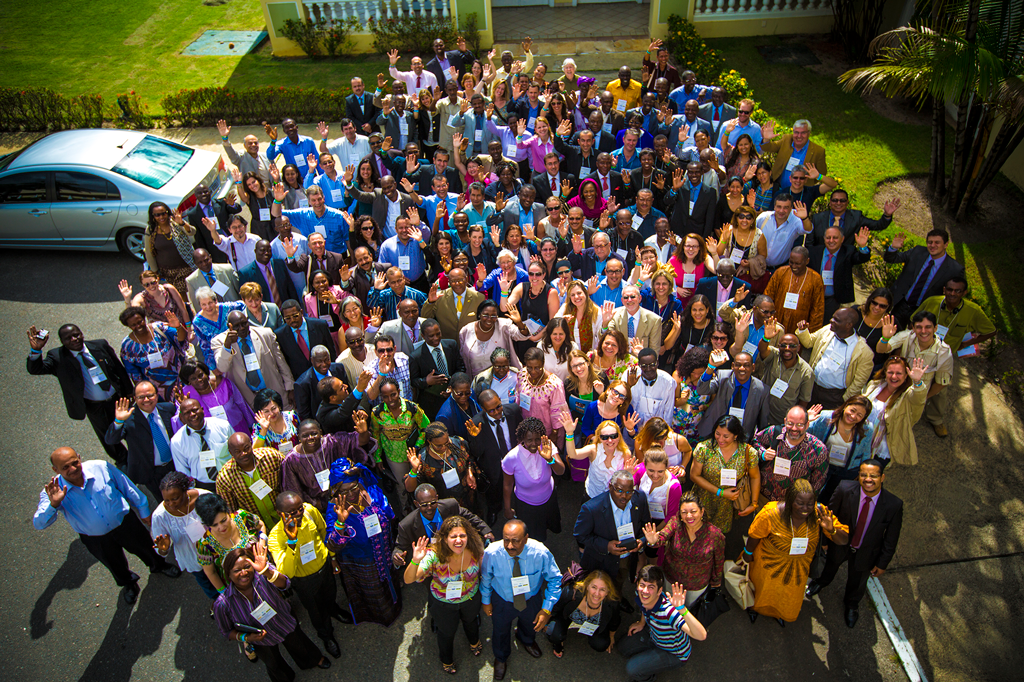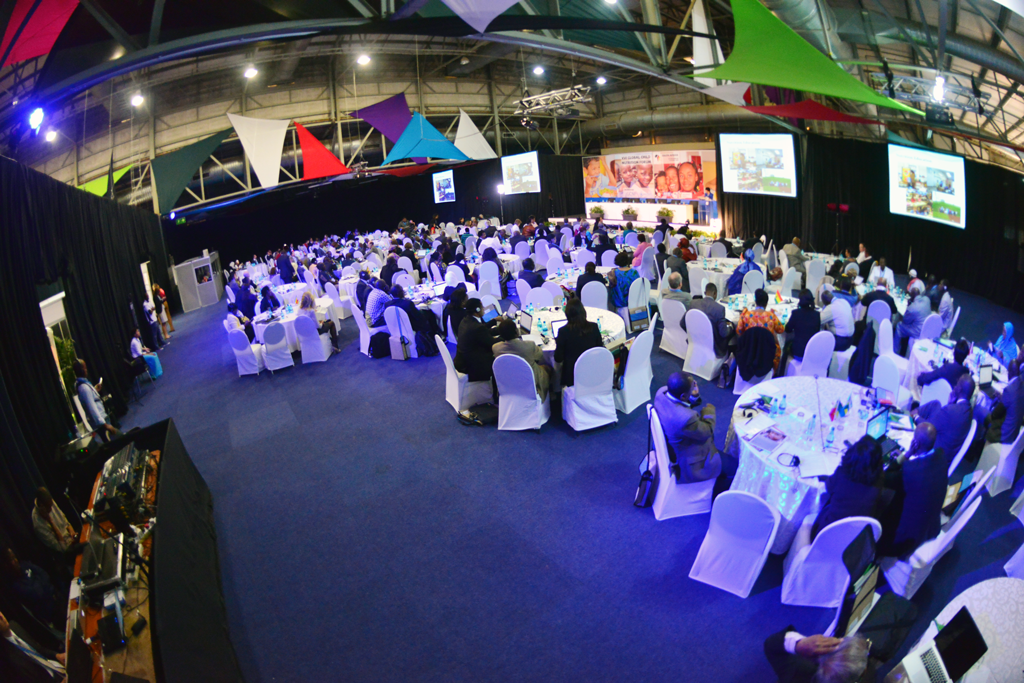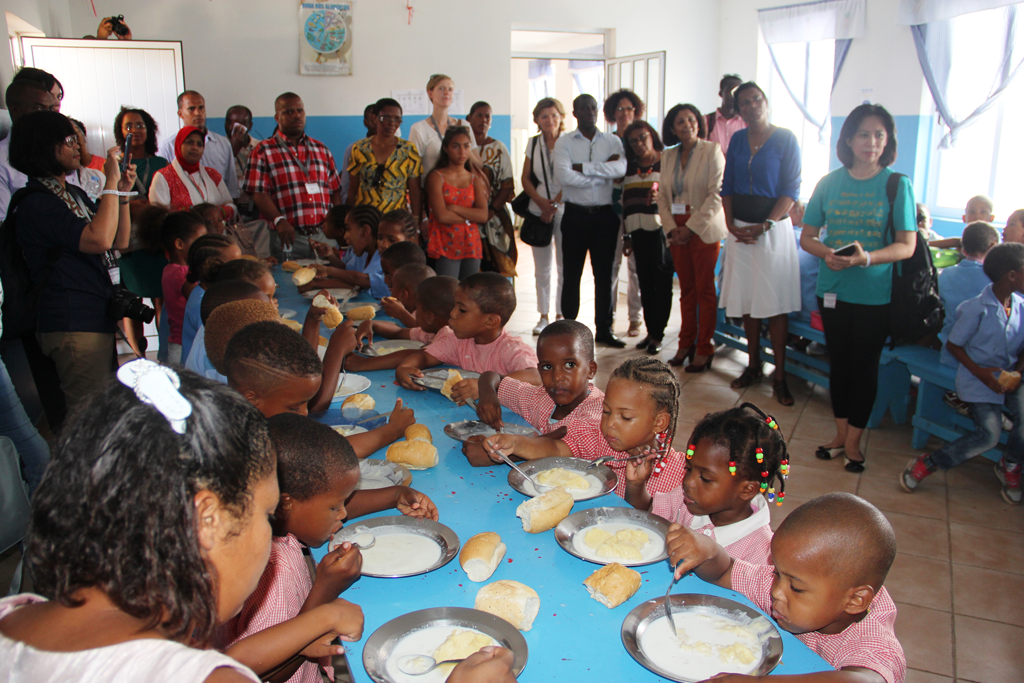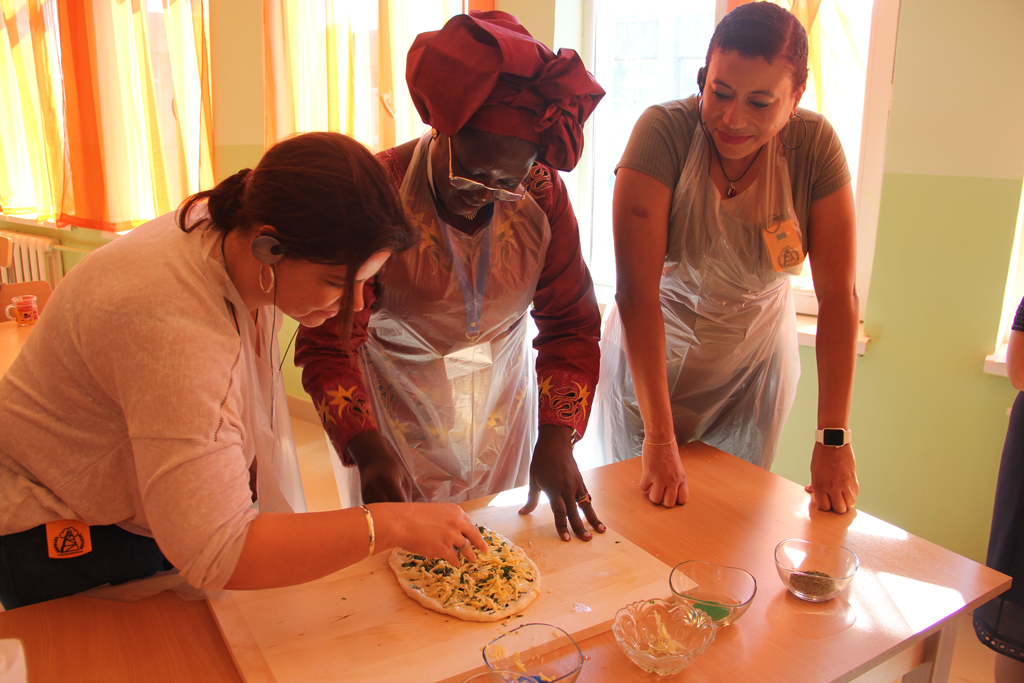The Global Child Nutrition Forum begins on Sunday, 17 September. As we approach this year’s event, we take the opportunity to remember what the Forum has achieved in the last four editions.
Every year, experts, academics and representatives of governments, civil society and the private sector attend the Global Child Nutrition Forum to discuss strategies to increase the reach and the quality of school meals programmes. These programmes contribute to improving the nutritional status of children and benefit smallholder farmers and local economies. Throughout the years, the results and recommendations of the Forum shifted to accompany the evolution of participants’ visions on school feeding and child nutrition.

2013 – Brazil
In 2013, the Forum happened in Bahia, a state in the Northeast of Brazil. Around 250 participants from 40 countries engaged in training sessions on specific methodologies to assess school feeding programmes. The highlight of the programme was the field trips to see first-hand the Brazilian school feeding programme, the largest universal school feeding initiative in the world. Participants visited different regions of Bahia state, to see local experiences and elements of the Brazilian school feeding programme: a smallholder farm, a local cooperative, a distribution centre and a school.

2014 – South Africa
Representatives from 40 countries met near Johannesburg to discuss strategies to ensure sustainable home-grown school feeding programmes, investment in nutrition, and ways to influence the global development agenda. The 250 participants recognized the potential of school feeding to contribute to achieving multiple Sustainable Development Goals and recommended that governments consider school feeding programmes as an investment and not as an expenditure. They also recommended that sustainable school feeding programmes linked to smallholder farmer production be recognized as a key strategy for the achievement of the Zero Hunger Challenge, and the SDGs. It was in South Africa that the seed for the creation of the African School Feeding Network was planted.

2015 – Cabo Verde
One year later, in Cabo Verde, 250 representatives of 42 countries recommended that all governments ensure legal and institutional frameworks for the implementation of sustainable school feeding programmes, including dedicated budget lines. The main theme of the Forum was innovative financing for school feeding. Strengthening south-south and international cooperation was one of the Forum recommendations, as well as that the countries and their partners should establish a timeline for transitioning from externally assisted to country-owned school feeding programmes.

2016 – Armenia
Representatives from 45 countries met in Yerevan, Armenia, to discuss the design and implementation of powerful and durable national school meals programmes. One of the main themes discussed during the 2016 Forum was the inception of regional school meals networks. The African School Feeding Network was created as a direct result of the 2014 Forum edition and, in 2016, South Asian countries decided to do the same. It was a consensus during the forum that this kind of network is an important tool to promote exchange of information among countries facing similar challenges. Participants also recommended that home-grown school meals should be pursued as priority programmes by governments, with adequate budget and based on studies and analyses.
The 2017 Global Child Nutrition Forum’s theme is building bridges to sustainable development through school meals programmes: engaging local, national, regional, and global communities. The event will happen in Montreal, Canada, from 17 to 21 September. Around 300 participants representing 50 countries are expected at the Forum that, after contributing to the recognition of school feeding as a crucial tool for sustainable development, will discuss how we can do it together.
The Global Child Nutrition Forum is organized every year by the Global Child Nutrition Foundation and the WFP Centre of Excellence against Hunger. This year, the event has the support of the Breakfast Club Canada.




